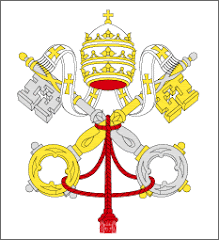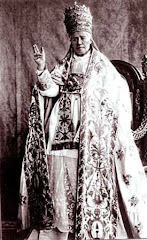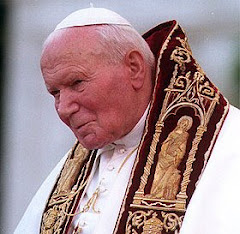A couple of years ago, Hugo Chavez was outraged by a comment made by Pope Benedict in which he stated that Christianity was an agent of purification for the Central and South American cultures that it converted. The fact that Chavez would see this as an insult rather than a completely rational observation is disturbing. I wonder what part of human sacrifice Chavez sees as worthy of retention. Was Pope Benedict stating his utter distaste for the heritage of the Central and South American people, or was he simply acknowledging the awesome power of Christianity to bring already existing cultures out of the ghetto of potentiality and into the actuality for which they were meant – an actuality characterized by adherence to natural law and the one, true God?
This incident provides an opportunity to ask important questions: What role does and should Christianity play in the development of those cultures in which it finds itself? Does Christianity seek to impose itself at the detriment of already existing cultures or does it seek to build up that culture while leading it away from those traditional practices that do not benefit the nature of man as an image of God?
The role of Christianity within already existing cultures has historically proven itself to operate in such a way as to preserve those positive aspects and traditions of that culture, even to the point of assimilating them into their expression of Catholicism. What else would explain for the great success in the Church’s missionary work and the continued adherence to the faith of these converted peoples? A clear example of this would be the many traditions that exist within Latino Catholicism distinct from the traditions of European and American Catholicism. These traditions that characterize the culture of Latino Catholicism were obviously not forced upon them by a foreign influence. If so, they would be clearly seen in that foreign culture with which it came into contact.
To claim that the missionary activity of the Church is an infringement on the individuality of another culture is to profoundly underestimate that culture. In fact, such a stance reveals a sense of superiority on the part of the one holding that stance over the culture it is claiming to protect. To hold this position is to show little to no confidence in a culture’s ability to determine its own future. If an event of interculturality, as opposed to inculturation, takes place, then the culture that is approached by Christianity and, thus, opens itself to the transformative influence of Truth, will without doubt lose nothing of its own that is objectively positive. Rather, those elements of truth that already existed within it will naturally be brought to a greater degree of perfection while shedding off those elements that were both contrary to Truth and even destructive to the culture in which they were spawned. It would be foolish to assume that every tradition and element of cultural identity is absolutely necessary and even positive for that culture, so when that culture encounters challenges to its established ways that allow it to respond with openness and even change within itself, then such a move must be seen as a legitimate expression of that culture. It is not the loss of culture but rather its evolution. When a culture opens itself to ideas outside of itself and recognizes the need to adopt as its own those positive elements it sees in others, we not only see the upward movement of that culture, but also the reaching of the goal of that culture which is ultimately the goal of all cultures – the attainment of Truth. Truth cannot destroy. By its very nature, Truth is creative and life-giving. It is safe to assume, then, that the failure of that culture to open itself to a positive transformation in an encounter with Christianity would be to deny itself the opportunity of self-actualization and the rebirth of itself in newness of life. Pope Benedict makes this very point in his book Truth and Tolerance:
“That may lead to a profound reshaping of that culture’s previous form, yet this does not necessarily involve any kind of violation or alienation. In a positive case, it may be explained by the potentially universal nature of all cultures, which is concretized in the acceptance of what is other and the change of what is its own. A process of this kind can in fact lead to a breaking open of the silent alienation of man from the truth and from himself that exists within that culture.”
This concept of the purification of culture through faith is not exclusive to those third-world countries that tend to be the more obvious examples. It is, indeed, as absolutely necessary to our own ‘civilized’ and ‘stable’ cultures here in the New World and Europe as it is in those parts of the world that are still being evangelized. We have yet to reach a cultural point at which we can say with surety that we have attained Truth. In fact, it seems that the very opposite can be said: “We have lost the Truth that we once had.” Therefore, a new evangelization is necessary. A new purification through faith must be established. Only then will this culture in which we live experience the rebirth that it so badly needs. Without rebirth, it will drown in the stagnant waters that it has drawn for itself.
11 years ago



















2 comments:
Great post, Joseph! I'm just getting into Ratzinger's "Without Roots" (with Marcello Pera). Pages 120 through about 135 paricularily outline his practical vision of rebirth and the new evangelization through culture. Check it out and tell me your thoughts!
Joseph,
How do you see this "purification through faith" being established? At least here in the U.S.?
What concrete steps might we be taking, as individuals, and the Church as a whole, in order to bring about a purification?
I see the Holy Father's Motu Proprio, Summorum Pontificum, as the key to a New Evangilization.
Thanks.
Post a Comment